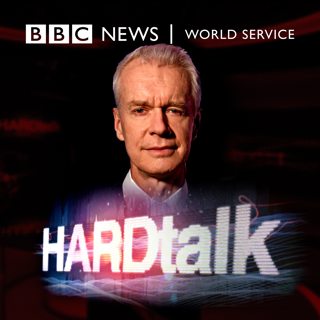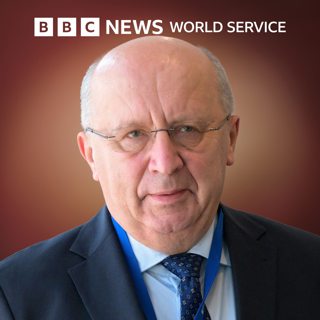
Victor Ponta - Prime Minister of Romania
At the end of 2013, Romanians will be able to live and work in any EU country they want to. All work restrictions, imposed by some countries when Romania and Bulgaria joined the union six years ago, will be lifted. There were worries then that workers from those two impoverished European states would flock to richer nations, and such concerns have not gone away. Zeinab Badawi speaks to Romania's Prime Minister Victor Ponta. He's on a mission to restore his country's image. Can he succeed?(Image: Prime Minister of Romania Victor Ponta. Credit: AP Photo/Vadim Ghirda)
20 Mars 201323min

Kenneth Clarke - Conservative Government Minister, UK
Stephen Sackur asks veteran Conservative cabinet minister Ken Clarke if prime minster David Cameron is in danger of losing grip of his party. No one ever said it would be easy for the British prime minister - his government is an uneasy coalition, and his economic inheritance was disfigured by debt. But right now his biggest problems are coming from within. The Conservative Party is fractious; his authority has been challenged on everything from economic policy, to Europe, to his vision of progressive conservatism.(Image: Ken Clarke. Photo by Paul Gilham/Getty Images)
18 Mars 201323min

Theodor Meron - President of the International Criminal Tribunal for the former Yugoslavia
Two decades ago the world's killing fields were in the Balkans and Rwanda but right now, they're in Syria. Can we be any more confident today, than we were back then, that the perpetrators of war crimes and crimes against humanity will be brought to justice? Stephen Sackur speaks to Theodor Meron, currently serving a second term as President of the International Criminal Tribunal for the former Yugoslavia. When it comes to delivering justice, is the international legal framework now in place fit for purpose?
15 Mars 201323min

Moncef Marzouki - President of Tunisia
Stephen Sackur visits the grand presidential palace in Tunis to speak to the Tunisian president and former human rights campaigner Moncef Marzouki. During his presidency, Tunisia's status as the success story of the Arab uprising has been threatened by growing internal tensions. What has happened to Tunisia's revolution?(Image: Tunisian President Moncef Marzouki. Credit: FETHI BELAID/AFP/Getty Images)
13 Mars 201323min

Lord Bilimoria – Founder and Chairman, Cobra Beer
Britain and India are two countries united by 200 years of shared history but now with an ever growing distance in ties. India is a rising global economic powerhouse: Britain a former imperial power in search of a global boost to its ailing economy. When the British prime-minister David Cameron visited India in February, he took a 100 strong trade delegation with him. Amongst them was the Indian born British entrepreneur, Karan Bilimoria, who was founding chairman of the UK-India Business Council. Is Britain becoming more irrelevant to India today?
11 Mars 201323min

Timo Soini - Leader, The Finns Party
Europe's prolonged economic crisis has prompted a populist backlash against the powers that be. In Finland, the EU's prosperous northern outpost, the big beneficiary has been Timo Soini, leader of the Eurosceptic, nationalist party long known as the True Finns. He wants to see the Eurozone dismantled, immigration curbed, traditional values restored. Critics have labelled the party xenophobic - is this the angry politics of European disintegration?(Image: Timo Soini. Credit: JONATHAN NACKSTRAND/AFP/Getty Images)
8 Mars 201323min

Henry Winkler - Actor
Henry Winkler's long career will always be defined by one role. He was the Fonz, the cool dude at the centre of the US TV show Happy Days which was a worldwide hit in the '70s and '80s. The show portrayed an innocent, untroubled 1950s America. It was a far cry from Winkler's own childhood which was clouded by undiagnosed dyslexia. How did a troubled kid come to be a symbol of sunny optimism, and what happened to the idealised America of Happy Days?(Image: Henry Winkler, Credit: Getty Images)
6 Mars 201323min

AB Yehoshua - Author
The conflict between Israelis and Palestinians arouses passions like few others. But on one thing most people can agree: that there's no prospect of the struggle ending anytime soon. So given the failure of the politicians and the diplomats, the militants and the liberals – what should we take from the words of the writer? AB Yehoshua is known as one of Israel's great men of letters. His latest book is seen by some as a powerful allegory of the journey Israeli Jews need now to take. So can he chart a way through the quagmire? And why does he have such a low opinion of Jews outside Israel?(Image: AB Yehoshua, Credit: AFP/Getty Images)
4 Mars 201323min






















